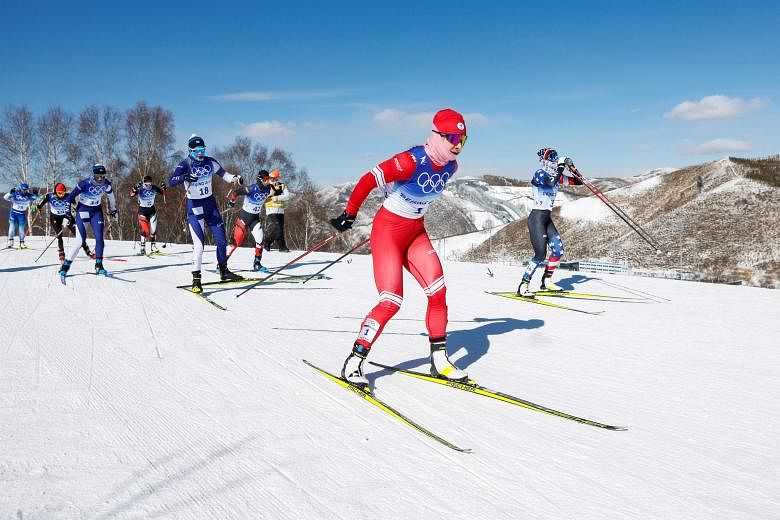BEIJING (NYTIMES) - China may be a relative newcomer to skiing, and winter sports more generally. But the tradition of skiing stretches back generations in one mountain community in the country's north-west, which some Chinese historians believe is the birthplace of the sport.
As evidence, researchers have pointed to cave paintings in the community, which sits in the lowlands of the Altai Mountains. The paintings depict hunters on skis, and Chinese archaeologists have said they date back more than 10,000 years.
Other historians have raised questions about the claim, citing the difficulty of dating rock art.
Still, there is no doubt that skiing has long been a way of life in the Altai Mountains in northern Xinjiang, a nub of territory where China, Mongolia, Kazakhstan and Russia intersect.
For thousands of years, the people of the Altai - who include ethnic Kazakhs, Mongolians and Tuwas - have been making wooden skis by hand and using them for transport and hunting.
The traditional skis are wider and covered on the bottom with horsehide. Instead of plastic and metal bindings, they are loosely tied on with leather string. Altai skiers also use a single wooden staff for balance.
Mr Nils Larsen, a documentary film-maker who researches ancient ski history, has visited the region many times. Recalling one particular ski outing, Mr Larsen said that the traditional skis were much better suited than his modern skis to the deep, soft snow in the area.
"We couldn't keep up with them," Mr Larsen said. "They are crazy skiers."
In recent years, the local ski tradition in the Altai has faded with the encroachment of modernity and the Chinese government's promotion of modern winter sports.
At the same time, the authorities in China have sought to use the area's ski tradition as a selling point for tourists, part of a larger government-backed plan to transform Xinjiang into an international ski destination.
In the lead-up to the Beijing Olympics, Chinese state media released a flurry of videos about the local ski culture in Xinjiang and the many ski resorts that have been built around the region.
During the opening ceremony this month, organisers displayed footage of ethnic minorities in traditional dress skiing in the Altai region.
Chinese officials have said that the development of winter sports will help bring economic prosperity to the region.
But critics have accused the government of using Xinjiang's ski history to whitewash its harsh repression of ethnic minorities, a crackdown that the United States and other governments have labelled genocide. China has denied such accusations.
"I find it insulting and stomach-turning that the Chinese Communist Party uses the guise of sports to convert our homeland into a ski resort and bury its crimes against humanity and genocidal policies," said Mr Rushan Abbas, a Uighur American activist whose sister, Gulshan, has been sentenced to 20 years in prison in Xinjiang.

